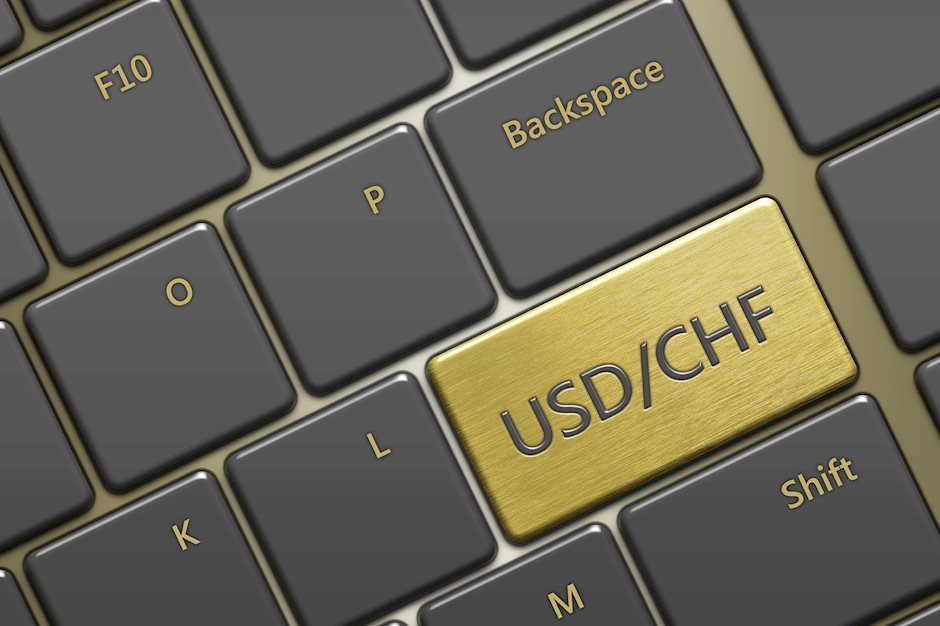USD/CHF falls to near 0.8500, Swiss Franc receives support from potential safe-haven flows
- USD/CHF halts its winning streak as safe-haven Swiss Franc receives support from rising Middle-East tensions.
- The CHF faced challenges as softer inflation data bolstered expectations of SNB’s 50 basis point rate cut in December.
- The US Dollar receives downward pressure as US Treasury yields lose ground.

USD/CHF breaks its four-day winning streak, trading around 0.8510 during Friday’s Asian session. The Swiss Franc (CHF) receives support from the safe-haven flows amid rising Middle-East tensions. US President Joe Biden mentioned that the United States is in talks with Israel regarding potential strikes on Iran's Oil infrastructure.
Moreover, Israeli Prime Minister Benjamin Netanyahu warned that Iran "will pay a heavy price" for Tuesday’s attack, which reportedly involved the launch of at least 180 ballistic missiles at Israel, according to the BBC.
The Swiss Franc (CHF) faced downward pressure following Thursday's weaker-than-expected inflation data, which has raised the likelihood of dovish policymakers advocating for a 50 basis point rate cut by the Swiss National Bank (SNB) in December. Previously, the SNB had already lowered the key interest rate by 25 basis points for the third consecutive time.
Switzerland's Consumer Price Index rose 0.8% year-over-year in September, down from both market expectations and August's figure of 1.1%. This is the lowest inflation rate since September 2021. Additionally, the monthly inflation rate dropped by 0.3%, exceeding forecasts of a 0.1% decline, after remaining flat in August.
The US Dollar (USD) breaks its winning streak amid subdued US Treasury yields. The US Dollar Index (DXY), which measures the value of the US Dollar (USD) against its six major peers, trades around 101.90 with 2-year and 10-year yields on US Treasury bonds standing at 3.70% and 3.845, respectively, at the time of writing.
Federal Reserve Bank of Chicago President Austan Goolsbee reiterated on Thursday that the interest rates need to come down over the next year by “a lot.” Goolsbee further stated that he’d like to keep the unemployment rate at 4.2% from rising any further.
Swiss Franc FAQs
The Swiss Franc (CHF) is Switzerland’s official currency. It is among the top ten most traded currencies globally, reaching volumes that well exceed the size of the Swiss economy. Its value is determined by the broad market sentiment, the country’s economic health or action taken by the Swiss National Bank (SNB), among other factors. Between 2011 and 2015, the Swiss Franc was pegged to the Euro (EUR). The peg was abruptly removed, resulting in a more than 20% increase in the Franc’s value, causing a turmoil in markets. Even though the peg isn’t in force anymore, CHF fortunes tend to be highly correlated with the Euro ones due to the high dependency of the Swiss economy on the neighboring Eurozone.
The Swiss Franc (CHF) is considered a safe-haven asset, or a currency that investors tend to buy in times of market stress. This is due to the perceived status of Switzerland in the world: a stable economy, a strong export sector, big central bank reserves or a longstanding political stance towards neutrality in global conflicts make the country’s currency a good choice for investors fleeing from risks. Turbulent times are likely to strengthen CHF value against other currencies that are seen as more risky to invest in.
The Swiss National Bank (SNB) meets four times a year – once every quarter, less than other major central banks – to decide on monetary policy. The bank aims for an annual inflation rate of less than 2%. When inflation is above target or forecasted to be above target in the foreseeable future, the bank will attempt to tame price growth by raising its policy rate. Higher interest rates are generally positive for the Swiss Franc (CHF) as they lead to higher yields, making the country a more attractive place for investors. On the contrary, lower interest rates tend to weaken CHF.
Macroeconomic data releases in Switzerland are key to assessing the state of the economy and can impact the Swiss Franc’s (CHF) valuation. The Swiss economy is broadly stable, but any sudden change in economic growth, inflation, current account or the central bank’s currency reserves have the potential to trigger moves in CHF. Generally, high economic growth, low unemployment and high confidence are good for CHF. Conversely, if economic data points to weakening momentum, CHF is likely to depreciate.
As a small and open economy, Switzerland is heavily dependent on the health of the neighboring Eurozone economies. The broader European Union is Switzerland’s main economic partner and a key political ally, so macroeconomic and monetary policy stability in the Eurozone is essential for Switzerland and, thus, for the Swiss Franc (CHF). With such dependency, some models suggest that the correlation between the fortunes of the Euro (EUR) and the CHF is more than 90%, or close to perfect.
Author

Akhtar Faruqui
FXStreet
Akhtar Faruqui is a Forex Analyst based in New Delhi, India. With a keen eye for market trends and a passion for dissecting complex financial dynamics, he is dedicated to delivering accurate and insightful Forex news and analysis.

















